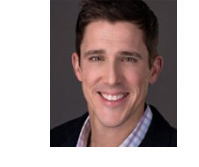This post correlates to a presentation delivered by Dr. Gladd in The Evolution of Cardiology Functional Forum (March 2017). Click here to view the presentation.
The most common criticism of direct-pay practices is that the services are too expensive and only accessible by patients with the means to afford them. As practitioners, we can all agree that health care should not cost an arm and a leg, but are we advocating for the financial wellness of our patients as much as their physical wellness? If we believe the services and guidance we provide are worth it, then we must become health care “financial advisors” and demonstrate how our care can be worth it to our patients. The first step is identifying challenges in the current health care system.
Consider these truths:
- Practitioners don’t like to talk about money.
- The health care complex is cost-blind.
- Patients have growing sticker shock.
- Patients are feeling the financial burden.
According to a recent study by the Kaiser Family Foundation, premium costs are slowing as higher-deductible insurance plans rise. From 2011 to 2016, deductibles rose 49%. For the first time in nearly three decades, 51% of patients have a deductible greater than $1,000. While these numbers may appear grim, they present an incredible opportunity for us as practitioners. This knowledge is the best motivation to learn the cost of health care services in our communities, and to engage with patients about easing the financial burden of care. By learning the costs of services, from MRIs to specialist visits to lab work, we can uncover ways to save patients money. Not only can we help prevent a significant medical event with our care, but we can also provide cost savings on routine medical treatments.
Finding ways to help patients save on health care costs takes time, time that we don’t always have. But this extra effort will pay significant dividends in the value patients place on your care. In the current health care system, care for the whole person includes financial wellness, too. This is our opportunity to not only share the value of our services, but also to ensure preventative medicine is accessible to all.
 | About Jeff Gladd, MD Dr. Jeff Gladd graduated from Indiana University School of Medicine in 2001. He then went on to train in family medicine at Ball Memorial Hospital in Muncie, Indiana. After completing his residency, Dr. Gladd started a family practice that encompassed full-spectrum care, including obstetrics, colonoscopy and endoscopy in Columbia City, Indiana in 2006. After the birth of his second child, Dr. Gladd transformed his professional and personal focus toward health through nutrition. By educating himself and applying the principles of eating whole foods, he lost 50 pounds, and reveled in improved energy and mental clarity. As a physician, increasing doses and adding medications was no longer acceptable. Dr. Gladd delved into his patients' lives — how they ate, how they managed stress, and discovered real health care. Dr. Gladd completed the University of Arizona Integrative Medicine fellowship program under the direction of Dr. Andrew Weil, MD at the end of 2009. While in the fellowship, Dr. Gladd served as the medical director of the Parkview Center for Integrative Medicine in Fort Wayne, Indiana, and in 2010 opened GladdMD Integrative Medicine where he blends health-promoting care with high-access technology. | |
Join Dr. Gladd at the upcoming Crossroads of Cardiovascular Care Conference
 |
 |




